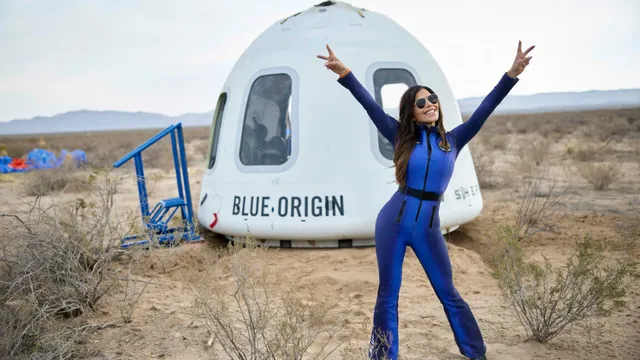
FAA decides not to define who qualifies as an astronaut
2025-04-18 19:59- The FAA has stated it will not determine who qualifies as an astronaut.
- A recent flight by New Shepard stirred debate around space tourism and its implications.
- This situation highlights ongoing discussions about astronaut qualifications in the context of commercial space travel.
Express your sentiment!
Insights
On April 18, 2025, a flight of the New Shepard spacecraft was conducted with an all-female crew. This flight sparked significant discourse surrounding the definitions of an astronaut and the implications of commercial spaceflight. Historically, the Federal Aviation Administration had recognized astronauts through a program that issued Commercial Space Astronaut Wings, which began in 2004. However, as of 2022, the FAA announced it would cease this practice and instead recognize individuals who reach space on its official website. This shift has fed a longstanding debate over the definition of astronauts, particularly concerning suborbital space tourists. Criticism ensued when a Trump official dismissed claims by those who had flown on private space tourism flights, arguing that they could not identify as astronauts. This speaks to a broader discussion about the value and legitimacy of space tourism and whether it dilutes the achievements of professional astronauts. While opinions vary, many in the space community appear to be accommodating of this evolving perspective on space travel, even if the technical definition remains inconsistent and debated. The events led to a conversation about the nature of achievements in the emergent realm of commercial space travel and its cultural ramifications.
Contexts
The title "What qualifies someone to be called an astronaut?" encompasses several criteria and experiences essential for identifying individuals as astronauts. Primarily, the term 'astronaut' refers to a person who has been trained and certified to travel and work in outer space. This generally includes extensive education and training, as well as meeting specific physical and psychological standards. The most commonly accepted pathway to becoming an astronaut is through advanced education, typically requiring a degree in engineering, physical science, biological science, mathematics, or a related field. In addition to formal education, candidates often have to acquire work experience, usually totaling at least three years of relevant professional experience, which may be substituted with advanced academic qualifications such as a master's or doctorate degree, or by having substantial achievements in scientific research or other high-level projects. Beyond education and experience, physical fitness plays a vital role in qualifying as an astronaut. The selection process for astronauts includes various physical and medical exams that assess the candidates' health, endurance, and overall physical capabilities. Candidates must also possess excellent vision, normal blood pressure, and be within an acceptable weight range. Psychological evaluations are equally critical, as living and working in the confined space of a spacecraft or space station—often for extended periods—requires individuals who can handle stress, work well in teams, and adapt to rapidly changing environments. The rigorous training that follows selection further prepares astronauts to handle these challenges and encompasses simulations, technical training, and physical conditioning. Moreover, astronauts are expected to possess strong problem-solving skills, teamwork capabilities, and the ability to communicate effectively, all of which are essential during missions that may involve unexpected challenges. They undergo extensive training to operate spacecraft, conduct scientific experiments, and respond to emergencies. Training often includes learning to operate robotic systems, conduct spacewalks (extravehicular activities), and manage various mission-related tasks under different conditions and environments, including microgravity. Astronaut training can often last for several years, depending on the mission requirements and the complexity of the astronaut's role, whether as a mission specialist, pilot, or commander. In conclusion, while the term 'astronaut' may seem straightforward, it embodies a set of stringent criteria and experiences that individuals must meet to qualify. From rigorous educational backgrounds and extensive physical and psychological evaluations to comprehensive training processes, the path to becoming an astronaut is exceedingly challenging and demanding. The challenges associated with space travel necessitate that candidates not only exhibit a high degree of technical competence but also possess extraordinary resilience and adaptability. Therefore, the definition of an astronaut extends beyond mere space travel; it includes embodying the necessary skills, knowledge, and endurance to thrive in an otherworldly environment.